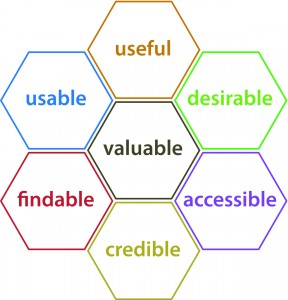☆ 二手經驗極為重要。
Many people will never truly understand
something unless it happens to them.
經驗是思考的素材,是知識的來源。
人類所有的知識,都來自一手或二手的經驗,
可靠的知識,來自對經驗的不斷反覆思考及證明,
而從可靠知識中創建的抽象理論,讓人類可以慢慢迫近真理。
Is there anyone so wise as to
learn by the experience of others?
( Voltaire )
很少人擁有超人的學習能力,
更加沒有人能夠擁有無限的時間,
所以除了「技巧」skills 必須是一手經驗之外,
很多重要的學問都是來自二手的經驗,
例如書籍中的記載及改編自小說或真實故事的電影。
二手經驗是旁觀者一種觀察別人事過境遷之後的學習,
英文叫做 vicarious experience,
而學習別人的二手經驗,叫做 vicarious learning。
學習別人的二手經驗,才能有「先見之明」foresight,
從個人的「經歷/遭遇」而得到的經驗,
只不過是「後見之明」hindsight。
Experience is the bridge between inexperience
and wisdom. Our wisdom comes not only from
the excavation/reflection of our own experience,
but also from the excavation/reflection of
the experience of others. We can grow through
these experiences only if we understand the
importance of honesty, courage, judgment,
and analysis arising from the love of truth.
( Jason Ling )
一個人必須具備足夠的智慧,
才能夠從人類諸多共同經驗之中提取具備普遍性的知識,
才能夠明白某些經驗應用的條件和範疇。
這就是為何對一般人來說,
不少二手的經驗往往勝於一手的經驗。
孔子讚顏回做學問「不二過」,
因為凡是在學習中所遇到的過失,
無論是他自己或者別人所犯的,
顏回都不會再犯,絕對不會重蹈覆轍。
子曰:「見賢思齊焉,見不賢而內自省也。」《論語。里仁》
只要拿起任何一本並非抄襲的優秀科學或哲學的書籍,
我們可否想像其中蘊藏著多少智者的努力和經驗?
經歷過多少智者之間的互相批判?
至於那些並非是人生中必需的知識和經驗,
我們往往會有諸多的考慮才去決定是否學習。
這幅圖顯示出這些考慮:
一般人的毛病往往是過份注重行動及強調一手經驗,
低估了「培養對經驗反思反省的能力」的重要性。
如果哲學和心理學裡得來的知識和經驗,
可以表達得更謹慎、更清晰、更淺顯易明,
或者甚至加上電影片段來加以說明,
不少二手的經驗往往勝於一手的經驗!
因為別人做了活教材,甚至付出了慘痛的代價,
並且在傷痕累累、痛定思痛之後作出了經驗總結。
既然別人早已付出了學費,為何對前車之鑑拒之門外?
The trouble with using experience as a guide
are threefold:
1. It can be very expensive.
2. It is time-consuming.
3. The challenge comes before we are prepared.
( Jason Ling )
幸好人世間許多經歷,不但可以重覆又重覆,
而且更加可以控制影響經歷的變數,
這些「刻意的經歷」,我們稱之為「實驗」,
近代科學的興盛,完全是依賴「實驗」,
依賴自然界和科學家的「真和誠」,
依賴科學家的思考能力及互相批判的制度。
可惜人世間許多經歷完全不能夠複製,
影響經歷的變數亦無法控制,
例如歷史及種種人生經歷,
需要大智大慧的思想家 [巨人] 抽絲剝繭,
從這些經歷之中汲取經驗和教訓!
為何我們不站在巨人樂意提供的肩膀上,
為何很多學校都不去教導?
為何很多學校都沒有哲學思考的鍛鍊?
學校對哲學思考的歧視,的確難以令人明白。
人生中頗多必需的知識和智慧,
為何很多學校都沒有系統性的教導和批判?
為何很多人都喜歡從不必要的錯誤中學習?
Human beings have the ability to learn vicariously
from the experience of others, but many of them
refuse to do so, preferring to learn in the hard way
because they have a tendency to overemphasize
direct experience, to prefer the feeling of the thorns
and to look down on wisdom.
If someone is determined to learn in the hard way,
he doesn’t need any help and no one can stop him.
This is always the proud motto for the less gifted:
One cannot understand another unless and until
he has walked in another’s shoes.
An optimist among the fools will tell you that
he didn’t fail because he had just succeeded in
finding out what doesn’t work.
( Jason Ling )
與其要從自己的失敗中汲取教訓,從自己的不幸中去學習,
不如先從別人的錯誤、失敗、損失和不幸之中學習。
人類的大部份經驗其實是可以從別人的錯誤中獲取的。
許多人的成功,都是建立在別人的錯誤和失敗的基礎上,
減少走冤枉的路,大幅度減少 trial and error 的次數。
聰明人能夠從別人的錯誤中學習到經驗,借鑒別人失敗的教訓;
愚蠢人即使從自己的失敗中也只能夠學到低層次的東西。
如果愚蠢人和聰明人從事同一種行業,
愚蠢人的十多年經驗怎可以和聰明人的三年經驗同日而語!
A prudent person profits from personal experience,
a wise one from the experience of others.
( Joseph Collins )
Human beings, who are almost unique in having
the ability to learn from the experience of others,
are also remarkable for their apparent
disinclination to do so.
( Douglas Adams )
